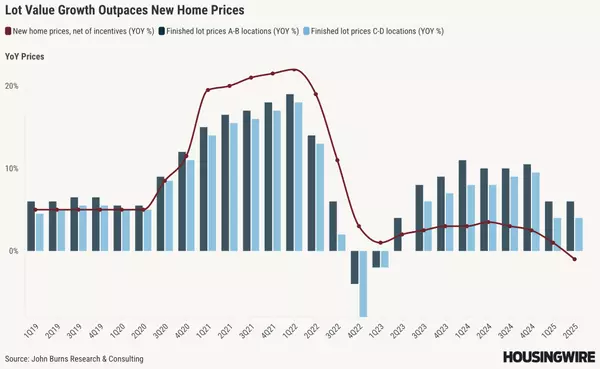Michigan judge strikes down Rocket Mortgage noncompete provisions
A Michigan judge ruled on Friday that Rocket Mortgage’s noncompete provisions are void and unenforceable, dealing a blow to the lender in its long-running legal battle with Swift Home Loans, its founder Andi Numan and several former employees.
The decision, issued by Judge Brian R. Sullivan of the Third Judicial Circuit of Michigan, cites the state’s Antitrust Reform Act. Under the law, post-employment covenants to restrict competition are only enforceable if they reasonably protect a company’s competitive interests with respect to duration, geography and type of work.
“The Court concludes the non-compete provisions do not protect Rocket’s reasonable competitive business interests and, therefore, are void and unenforceable,” Sullivan wrote in his ruling.
A spokesperson for Rocket told HousingWire in a statement that the company “categorically” disagrees with the judge’s opinion and plans to appeal.
Numan said he’s pleased with the decision, noting that the noncompete provisions in this case are “not fair to the loan officers, because at the end of the day, they’re just trying to make a living for themselves and their families.”
“They should be allowed to make a living and not be handcuffed just because Rocket doesn’t want someone to be a broker,” Numan said in an interview. “There’s no confidential information being used or taken, nor any past client information, in this case.”
Rocket first sued in 2022, alleging its former employees violated noncompete clauses in their employment and award agreements when they joined Swift, a brokerage launched by Numan in late 2020. Swift initially partnered with Rocket Pro, Rocket’s wholesale channel, before signing with competitor United Wholesale Mortgage (UWM).
The rivalry escalated after UWM announced in March 2021 that it would no longer work with brokers also doing business with Rocket Mortgage. Rocket followed with a broader lawsuit in September 2022 that sought, in part, to bar former employees from competing.
Sullivan noted that the defendants did not dispute the validity of Rocket’s confidentiality and non-solicitation provisions — and that they said they complied with them. But after extensive discovery, Rocket did not allege any violations of these clauses, he added. The judge also found no evidence the former employees were positioned to unfairly compete.
“Unfair competition resulting from misappropriation of confidential information can be a protectable interest,” Sullivan wrote. “But an unfair advantage cannot be based on an employee’s use of general knowledge or skill which is learned or gained in working for any employer. Such action is not protectable.”
Rocket argued that its extensive training justified the restrictions in the Swift Home Loans lawsuit. It cited an affidavit from Julie Edwards, vice president of learning and development, who claimed the lender invests at least $42,500 per banker.
But Sullivan dismissed the affidavit, saying it lacked supporting detail and relied on undisclosed information rather than personal knowledge. He also noted that training consisted of “roughly one month” to help new hires pass the mandatory SAFE Act exam.
The judge further rejected claims that customer information had been misused. He described Rocket as “essentially a telemarketing operation,” with each banker making 6,500 to 8,000 calls annually, according to a former employee.
By contrast, Swift buys 120,000 to 150,000 leads each month and makes about 800,000 calls. Repeat business accounts for only 1% to 2% of its volume.
The spokesperson for Rocket mentioned other two cases — previously ruled on by judges Muriel Hughes and Annette Berry in the Michigan circuit court — which had the opposite opinions.
“They ruled that the company’s non-compete agreements with mortgage bankers were reasonable, not overly broad and were enforceable in Rocket Mortgage v. House of Lending and Rocket Mortgage v. F5,” the spokesperson stated.
“Also, Judge Hughes entered judgement and awarded damages in Rocket Mortgage’s case against Rightway Lending, enforcing Rocket Mortgage’s non-compete agreements. Given the precedents, and the current state of Michigan law, we expect to be vindicated in this case.”
Sullivan wrote that the House of Lending and F5 Mortgage cases differ because Rocket identified former employees who took potentially confidential information.
“Here, there is no evidence that the former employees did or could unfairly compete, even in the absence of the non-solicitation and confidentiality provisions,” Sullivan concluded. “But to the extent there is any possibility of such unfair competition, which Rocket has not demonstrated, the confidentiality and non-solicitation provisions fully protect Rocket.”
Categories
Recent Posts









Broker Associate | License ID: BS 15753.LLC
+1(702) 596-1351 | linda@teamlindastewart.com
